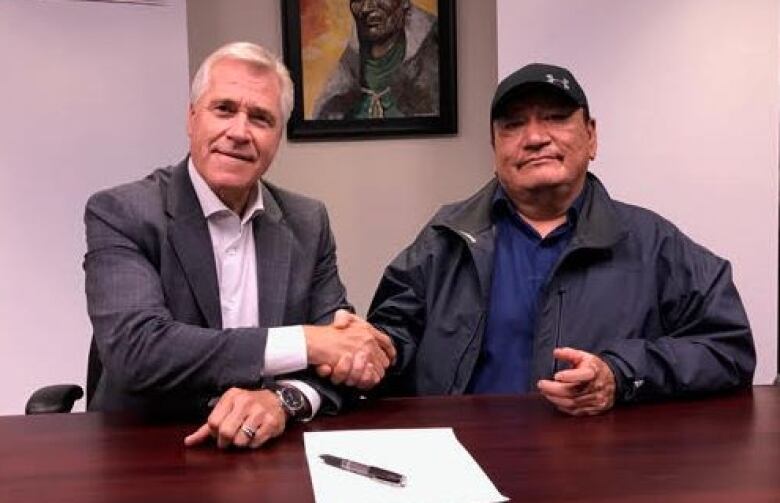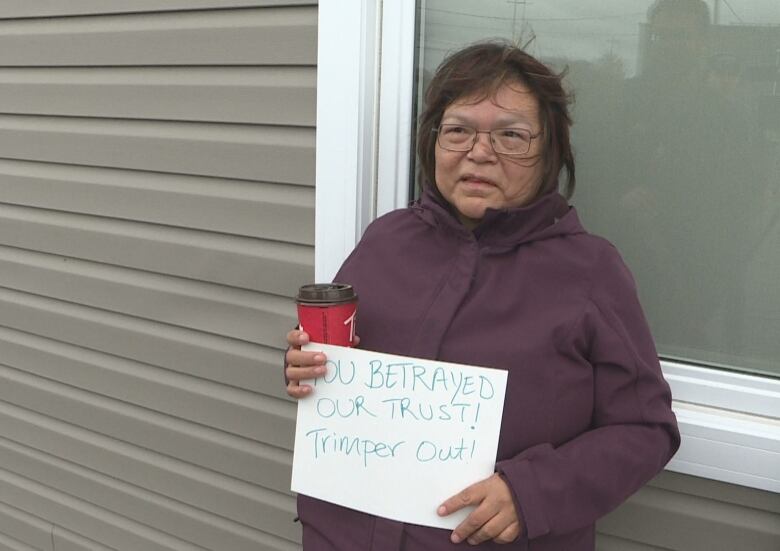How would you feel if a Trimper-like conversation had been about Newfoundlanders?
This is about far more than knowing when to hang up the phone

When Environment Minister Perry Trimper left a voice mail for an Innu Nation executive assistant just over a week ago, he set in motion events that would not only have him quickly out of cabinet, but change the Newfoundland and Labrador government's relationships with Indigenous groups.
He also opened a broader conversation one that needs to happen about the language that non-Indigenous citizens use to describe those who are.
Let's catch up on what happened, and how people reacted. On Sept. 11, Trimper returned a call to Dominic Rich at the Innu Nation. As I think everyone now knows he didn't hang up.
Earlier that day, Trimper's office had issued a benign news release that he would be attending a ceremony Thursday at the Merchant Navy Memorial outside the Marine Institute. He clearly had no idea that Thursday, Sept. 12, would be a day that would change his life from top to toe.
Trimper was calling Dominic Rich because Rich had asked for extra government support to cover the cost of having someone translate for Innu when they deal with motor vehicle registration. For about 20 years, Rich has been personally covering translation services for Innu elders and others whospeak only Innu-aimun. It's a service the Innu Nation, not the government, provides.
He's done this at banks and other services, but Rich's request to government was to cover one particular service: motor vehicle registration, a service of the provincial government. As Rich said in subsequent interviews, he's busy and cannot always do the work quickly himself.
For one reason or another, Trimper who, it has to be noted, was on just his sixth day of being back in cabinet (he had been Speaker since 2017) was so steamed by the very idea that after leaving the voice mail, he and an unidentified woman ramped up their indignation over the request.

"They have a feeling of entitlement," the woman says in the conversation that Rich's machine kept recording.
That prompted Trimper to take the direction into race.
"The race card comes up all the time," Trimper said.
"Man, don't play that on me. I've been 32 years working with you guys, don't play that on me."
I was curious to see public reaction afterwards, on social media and on the airwaves, and a thread that ran through it all was what I would describe as an effective shrug to what was said.
Particularly over the word "entitlement." What, one person among many said, is the big deal?
Put yourself in another's shoes
Let's flip the narrative.
Imagine what would happen, say, if a federal political leader commented that people in Newfoundland and Labrador "have a feeling of entitlement"?
The place would go up.
People here would feel insulted. Bruised. Maligned. Treated unfairly. Disrespected and pushed to the side.
It's happened before, of course, and likely will again. Various politicians have griped about things like whining and being greedy. Stephen Harper's infamous comments about Atlantic Canada "There is a dependence in the region that breeds a culture of defeatism," as he put it ignited a fire in the spring of 2002, and one that stuck with Harper for more than a decade. Many people in Atlantic Canada never forgot the sting of the words, and never trusted him.

So, yes, if someone had said about the province as a whole what Trimper and his associate said about the Innu, most people would feel hurt and betrayed.
Those two words are precisely what an Innu woman who worked on Trimper's campaign said at a subsequent protest outside his office in Happy Valley-Goose Bay.
"I feel very betrayed and hurt," said Jeannie Nuna, who had thought she had a friendly relationship with Trimper.
A story that unfolded very rapidly
Last Thursday evening, things changed rapidly for Perry Trimper. A copy of the recording made its way to us late in the afternoon, via a CBC colleague elsewhere in the country. Before 5 o'clock, Chris O'Neill-Yates, the network reporter in St. John's for CBC News, spoke with Trimper, who verified it was him on the tape. He also, as Chris relayed, sounded quite shocked.
Minutes later, the Innu Nation posted the recording on Twitter. We published a breaking story shortly after that, and then Trimper called back: he was on his way to Here & Now, to do a live interview with Anthony Germain.
I suspect that Trimper knew he was on a salvage mission, to hold his cabinet post together.
"Regardless if it was recorded or not, I shouldn't have said it," said Trimper, who described the conversation as "emotional" and "animated."
As much as Trimper wanted to clear the air, he also in his interview with Germain tried to rationalize it. "It's the frustration of the fiscal challenges that we have as a government," adding he was back in a cabinet portfolio and facing demands for services.
Sure, being a cabinet minister is demanding, but how you deal with pressure is another. There's surely no need to instantly go to "the race card" to dismiss a request.
Trimper's bid to salvage his career really didn't work. Even before he went on the air, the premier's office had issued a quickly worded statement that focused on one thing: repairing bridges with the Innu Nation.
By the next morning, Trimper was out.
He's managed to hold onto his caucus seat with literally not a chair to spare, Dwight Ball will be pragmatic about that but Trimper's fateful week is a lesson for all of us about empathy, fairness and race.
In this province, people who are not Indigenous need to think more expansively about the damage words can do.












_(720p).jpg)


 OFFICIAL HD MUSIC VIDEO.jpg)
.jpg)



























































































